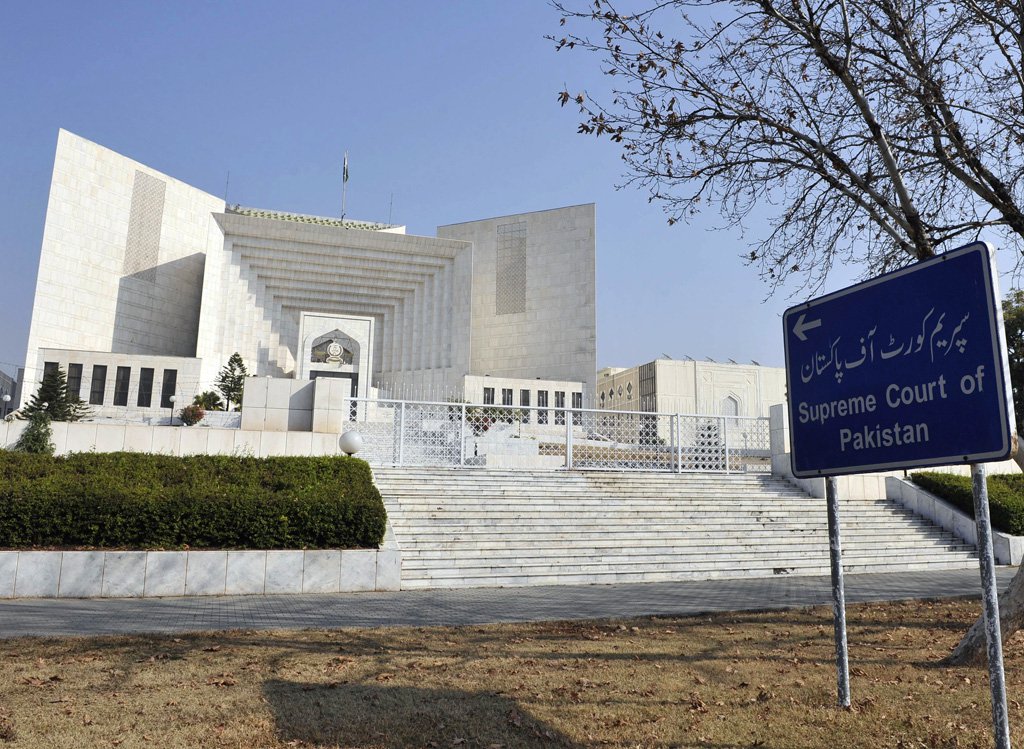
The apex court has given one month to the federal government to take a decision for establishment of 120 new accountability courts across the country for speedy disposal of pending graft cases.
A three-judge special bench, led by Chief Justice of Pakistan Gulzar Ahmed on Wednesday gave this deadline to the government while hearing a suo motu case regarding delay in trial of corruption cases.
Earlier, Additional Attorney General Sohail Mahmood told the bench that Attorney General for Pakistan (AGP) Khalid Javed Khan is going to have an important meeting with the prime minister regarding establishment of the courts that will hear cases filed by the National Accountability Bureau (NAB).
“Currently 24 accountability courts are fully operational across the country. The judges have been appointed to vacant positions and there are no vacant seats in the NAB courts now,” he said.
NAB prosecutor general told the bench that NAB Chairman Justice (retd) Javed Iqbal has also submitted a reply with regard to speedy disposal of cases. He said a draft of amended NAB rules was pending with the Ministry of Law.
The CJP noted that NAB had said the same thing at the previous hearing. The CJP later also sought a report from the Ministry of Law about status of the draft rules of the top graft buster.
During hearing of the case on July 8, the bench had also ordered the federal government to immediately appoint judges to five “vacant” accountability courts while “proposing” to establish at least 120 accountability courts in the country to deal with 1,226 pending cases.
Accountability courts were established under the National Accountability Ordinance (NAO) 1999 to adjudicate corruption references filed by NAB within 30 days. However, the bench had noted that some corruption cases had been pending for even 15 to 20 years.
On July 24, the federal government informed the Supreme Court that a staggering Rs2.86 billion per year were be needed to establish 120 new accountability courts.
A three-page report furnished on behalf of the secretary of law and justice informed the court that a huge amount of Rs23.87 million annually was needed to set up one accountability court.
It claimed that a total of 975 corruption cases were pending in 24 accountability courts. NAB had, however, earlier told the apex court that 1,226 cases were pending.
The ministry’s report said less than 80 cases were pending in each court, while the average pendency in an accountability court was less than 60 cases.
On September 3, the Ministry of Law unveiled a “comprehensive plan” to ensure speedy dispensation of justice and to comply with the directions of the apex court for establishing 120 accountability courts.
The plan included the overall human resources requirement and financial matters regarding the establishment of these additional courts.
“The federal government has been vigorously focusing to expedite the process of accountability across the board, for which these additional accountability courts would be established,” the ministry had said.
Talking to The Express Tribune, AGP Khalid Javed Khan said the federal government is willing to establish additional accountability courts in a phased manner.
Court expresses ire
The bench on Wednesday also expressed frustration over the non-appointment of a permanent secretary at the Ministry of Law and directed the authorities to appoint one. “Why is there no permanent secretary in the law ministry?” The CJ asked. “Ad-hoc system will not work.”
COMMENTS (1)
Comments are moderated and generally will be posted if they are on-topic and not abusive.
For more information, please see our Comments FAQ
1732498967-0/Outer-Banks--(1)1732498967-0-405x300.webp)
1732086766-0/BeFunky-collage-(74)1732086766-0-165x106.webp)















Who will appoint the judges. Unless the judges are honest and upright, it will make no difference even if 500 courts are established.